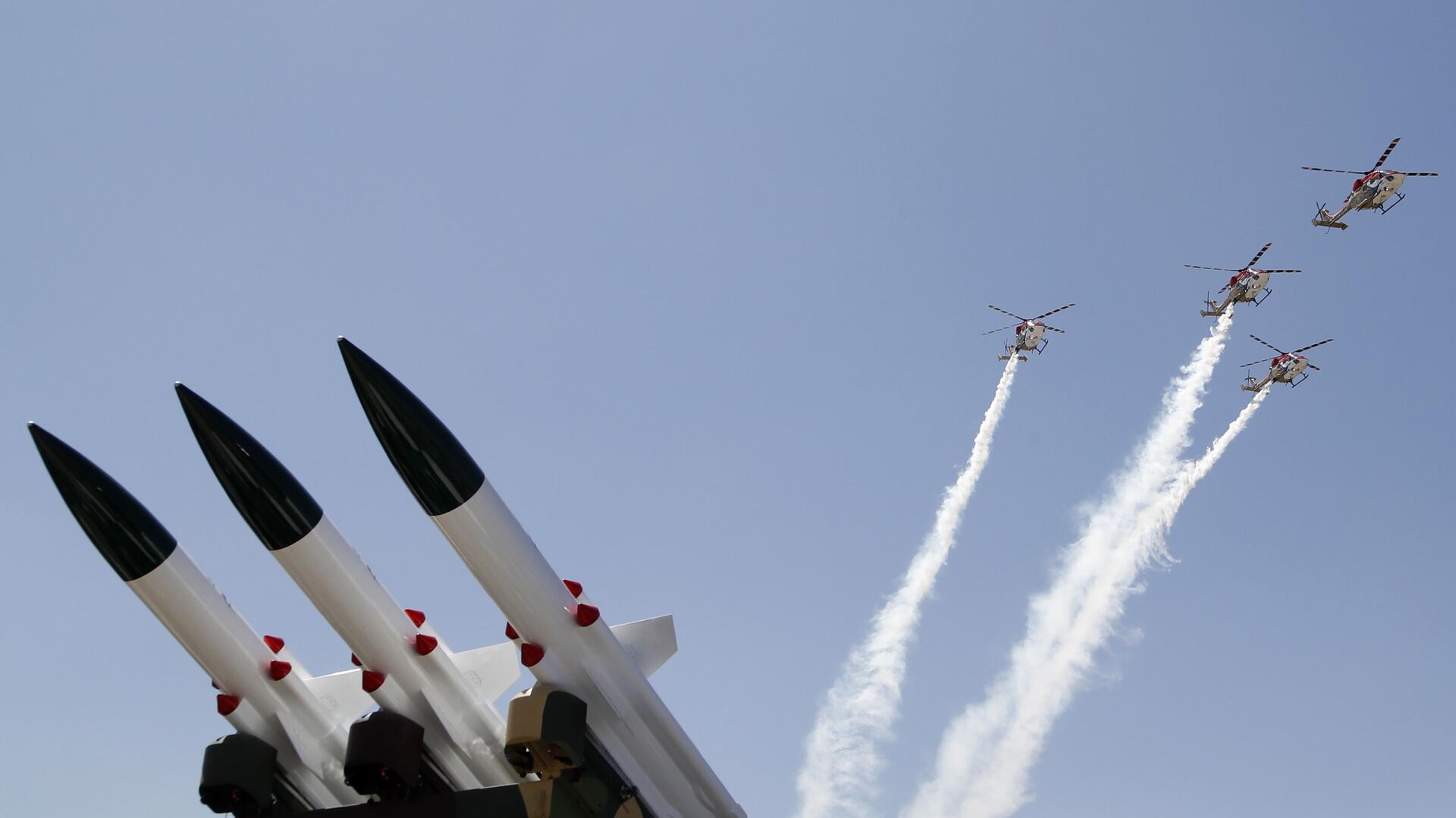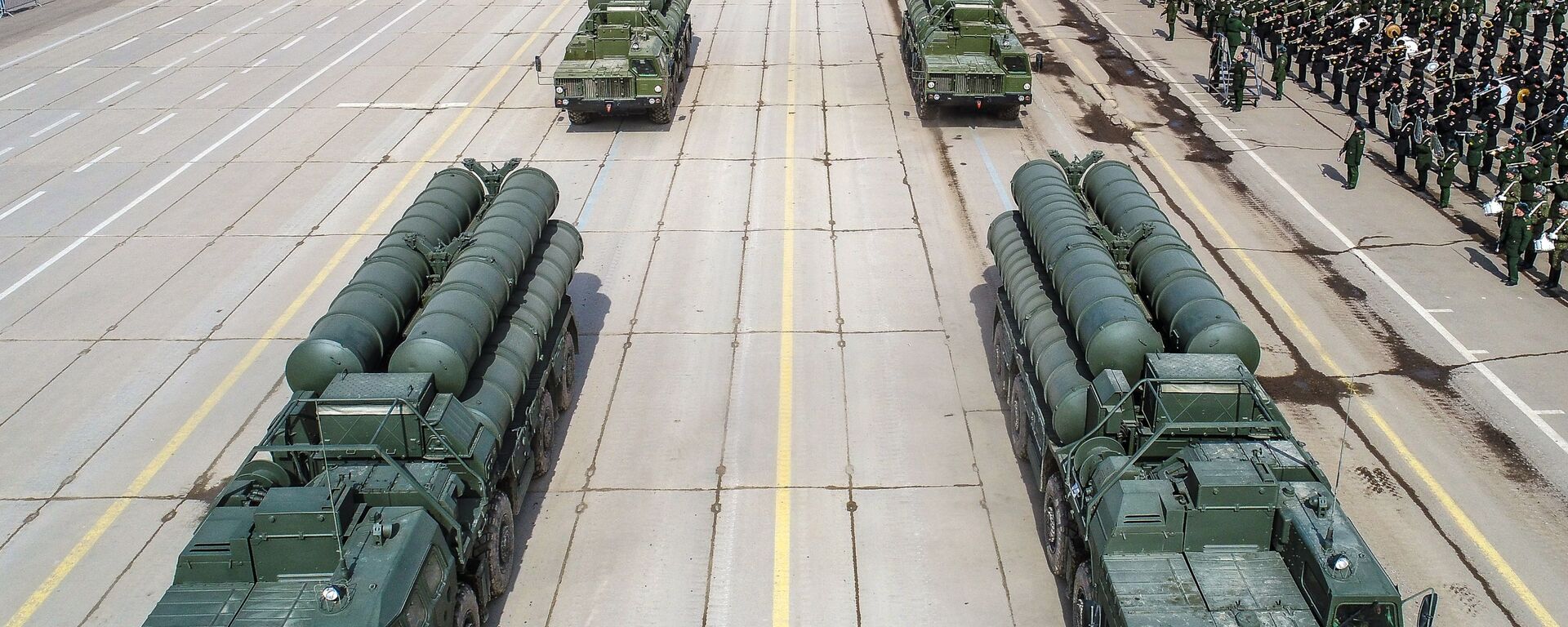https://sputniknews.in/20250604/nukes-in-the-sky-how-india-could-nix-the-threat-mid-flight-9234078.html
Nukes in the Sky? How India Could Nix the Threat Mid-Flight
Nukes in the Sky? How India Could Nix the Threat Mid-Flight
Sputnik India
Last month, India called out Pakistan's nuclear bluff during the Operation Sindoor. 04.06.2025, Sputnik India
2025-06-04T20:57+0530
2025-06-04T20:57+0530
2025-06-05T14:07+0530
sputnik opinion
india
pakistan
us
indian air force (iaf)
ballistic missile defence (bmd)
s-400 air defense systems
nuclear weapons
missiles
operation sindoor
https://cdn1.img.sputniknews.in/img/07e7/0c/15/5921022_0:49:3471:2001_1920x0_80_0_0_094eb207f102be72dec939355ca01096.jpg
India has developed the capability to intercept and neutralise nuclear warheads mid-air says a defence expert.Missiles can be stopped both in space and at a high altitude inside Earth's atmosphere, the former chief of the Defence Research and Development Organisation (DRDO) Vijay Kumar Saraswat said earlier this week.If the warhead is destroyed at high altitude, "its nuclear effect also becomes negligible," but if there is any "leakage" in the high-level shield, an "endo-atmospheric interceptor" will intercept targets at 15 or 20 km altitude, where the nuclear effect will be negligible.He stressed that an atomic bomb poses no threat to human lives if it is not detonated.Only a few nations have developed the technology to destroy atomic weapons in flight, including the US, Russia, India, China, France, the UK and Israel.The main system for knocking down nuclear missiles in Indian airspace is the homegrown Ballistic Missile Defence (BMD) shield.BMD is an indigenous multi-layered air defence network that combines advanced surveillance, early warning systems and command and control technologies.The components work in tandem to detect, track and destroy all kinds of aerial threats — conventional and nuclear — through a network of radars and interceptors.Stressing that India had developed a comprehensive mechanism to deal with nuclear threats, Gupta noted that BMD is an "automatic interdiction" platform, capable of detecting, tracking, and neutralising incoming ballistic missiles without human intervention.If a ballistic missile is launched by the enemy and reaches the country's airspace, it is intercepted and destroyed automatically in the air by the system.The robust and world-class quality of India's air defence was on full display during Operation Sindoor, where the country's indigenous systems like the Akash missile system, alongside the Russian S-400, eliminated almost all Pakistani drones and missiles sent towards Indian territory, the expert pointed out.Indian citizens should have no doubts about their defence capabilities, including the ability of their forces to eliminate nuclear threats, he added.Moreover, Pakistan's nuclear blackmail has lost its luster, if there was any sheen left to it, last month, the observer stated.
https://sputniknews.in/20250525/how-india--russia-are-changing-global-air-defence-landscape-9184233.html
india
pakistan
us
new delhi
delhi
Sputnik India
feedback.hindi@sputniknews.com
+74956456601
MIA „Rossiya Segodnya“
2025
Pawan Atri
https://cdn1.img.sputniknews.in/img/07e6/0c/13/139630_147:0:831:684_100x100_80_0_0_8fa2b25903e7787fe6a2698552c167df.png
Pawan Atri
https://cdn1.img.sputniknews.in/img/07e6/0c/13/139630_147:0:831:684_100x100_80_0_0_8fa2b25903e7787fe6a2698552c167df.png
News
en_IN
Sputnik India
feedback.hindi@sputniknews.com
+74956456601
MIA „Rossiya Segodnya“
Sputnik India
feedback.hindi@sputniknews.com
+74956456601
MIA „Rossiya Segodnya“
Pawan Atri
https://cdn1.img.sputniknews.in/img/07e6/0c/13/139630_147:0:831:684_100x100_80_0_0_8fa2b25903e7787fe6a2698552c167df.png
india, pakistan, us, indian air force (iaf), ballistic missile defence (bmd), s-400 air defense systems, nuclear weapons, missiles, operation sindoor, new delhi, delhi, drdo
india, pakistan, us, indian air force (iaf), ballistic missile defence (bmd), s-400 air defense systems, nuclear weapons, missiles, operation sindoor, new delhi, delhi, drdo
Nukes in the Sky? How India Could Nix the Threat Mid-Flight
20:57 04.06.2025 (Updated: 14:07 05.06.2025) Last month, India called out Pakistan's nuclear bluff during the Operation Sindoor.
India has developed the capability to intercept and neutralise nuclear warheads mid-air says a defence expert.
Missiles can be stopped both in space and at a high altitude inside Earth's atmosphere, the former chief of the Defence Research and Development Organisation (DRDO) Vijay Kumar Saraswat said earlier this week.
"When a missile is launched, we can't determine whether it is carrying a nuclear warhead or a conventional warhead," Saraswat told news network ETV Bharat, but "if it is carrying a nuclear warhead, we can intercept it at a high altitude."
If the warhead is destroyed at high altitude, "its nuclear effect also becomes negligible," but if there is any "leakage" in the high-level shield, an "endo-atmospheric interceptor" will intercept targets at 15 or 20 km altitude, where the nuclear effect will be negligible.
He stressed that an atomic bomb poses no threat to human lives if it is not detonated.
"It is like any other chemical that burns with a low degree of radiation," Saraswat explained, and "India can destroy it before any trigger takes place or before the fusion reaction takes place."
Only a few nations have developed the technology to destroy atomic weapons in flight, including the US, Russia, India, China, France, the UK and Israel.
The main system for knocking down nuclear missiles in Indian airspace is the homegrown Ballistic Missile Defence (BMD) shield.
BMD is an indigenous multi-layered air defence network that combines advanced surveillance, early warning systems and
command and control technologies.The components work in tandem to detect, track and destroy all kinds of aerial threats — conventional and nuclear — through a network of radars and interceptors.
"The importance of India having such a capability is huge, given that ballistic missiles follow a certain trajectory," ex-DRDO scientist Ravi Gupta told Sputnik India. "Once fired, these missiles first move into Space and then follow a parabolic trajectory before hitting their target."
Stressing that India had developed a comprehensive mechanism to deal with nuclear threats, Gupta noted that BMD is an "automatic interdiction" platform, capable of detecting, tracking, and neutralising incoming ballistic missiles without human intervention.
If a ballistic missile is launched by the enemy and reaches the country's airspace, it is intercepted and
destroyed automatically in the air by the system.
The robust and world-class quality of India's air defence was on full display during Operation Sindoor, where the country's indigenous systems like the Akash missile system, alongside the Russian S-400, eliminated almost all Pakistani drones and missiles sent towards Indian territory, the expert pointed out.
"Had Indian Armed Forces failed to intercept and destroy them mid-air, the devastation they would have caused would have been extensive, killing thousands of people, at least in civilian areas if not at military installations," Gupta said.
Indian citizens should have no doubts about their defence capabilities, including the ability of their forces to eliminate nuclear threats, he added.
Moreover, Pakistan's nuclear blackmail has lost its luster, if there was any sheen left to it, last month, the observer stated.
"While both Indian and Pakistani militaries have denied that the former attacked the latter's nuclear storage facility at Kirana Hills, there was enough satellite evidence available, including OSINT analysis, which confirms that the Indian Air Force (IAF) did strike there, forcing Pakistan to rush for a ceasefire on May 10," Gupta concluded.



